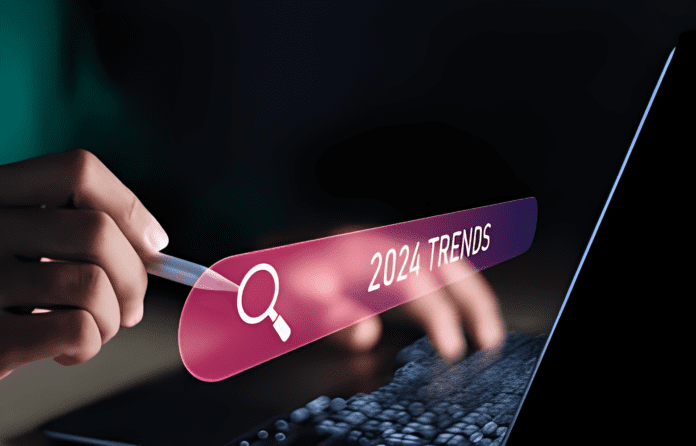Though it is an enormous undertaking to foretell what the future holds in the ever-changing realm of artificial intelligence, it is worthwhile to look back on the progress AI has achieved in the last year and think about where the technology could go in 2024.
Despite 2023 being a watershed year for AI, a lot of people were worried and speculated about it. The rise of AI naysayers, spearheaded by thinkers like Eliezer Yudkowsky, who warned of AI’s existential dangers, received a lot of attention. Concerns were heightened when major figures in the IT industry wrote an open letter calling for a six-month moratorium on advanced AI development to assess potential dangers and set up safety measures.

Putting a stop to AI development anytime soon is highly improbable, notwithstanding the validity of such suggestions. Western democracies would be at a strategic disadvantage compared to global rivals like Russia and China if this were to happen, regardless of how politically possible it would be. Even while they have signed a letter calling for a stop, proponents of the pause, like Elon Musk, are pushing on with their AI models. The continuous impetus in AI development is demonstrated by Musk’s business, xAI, which just debuted Grok, an AI chatbot.

The rise of the “effective altruism” (EA) movement in 2023 has only served to amplify the pessimistic outlook. But EA still had to overcome obstacles, even if it was financially strong and its impact was rising. Several issues were brought to light, casting doubt on the movement’s effectiveness and its sincerity, including the controversial dismissal and then reinstatement of OpenAI CEO Sam Altman by the company’s EA-affiliated board and EA’s ties to bitcoin scammer Sam Bankman-Fried.
As we enter the year 2024, the AI industry is set to undergo more changes as it deals with the challenges posed by ethical dilemmas, new technologies, and international rivalry.

In the coming year, there will be many discoveries and difficulties in the field of artificial intelligence (AI), which is expected to create a complex terrain. Although there has been a lot of talk about doomers in AI, we must not ignore the real worries and dangers that come along with this technology.
The potential effects on national security are particularly worrisome. There are serious concerns about the possible use of AI in cyber warfare that targets essential infrastructure, aids in the creation of BWC weapons, and advances information warfare through deepfakes and propaganda. Things that were formerly just in Hollywood are starting to come to fruition due to the widespread use of biometric technologies such as facial recognition.

A lot of attention will go into the next year’s conflict between open and closed AI systems. Companies like Meta emphasize openness, in contrast to OpenAI and Anthropic, which, despite their titles, today represent closed black-box models. The upcoming EU AI Act exemplifies the fine line that politicians must walk between stifling innovation and overreaching their authority. The necessity for a competitive marketplace is highlighted by the fact that excessive regulation runs the risk of favoring tech giants at the expense of competitors.
The latest executive order on artificial intelligence (AI) issued by President Biden lays the groundwork for forthcoming regulations in 2024. While copyright and intellectual property difficulties are anticipated to be more complex, debates on topics like prejudice and discrimination may follow party lines.
The increasing number of legal and regulatory hurdles is highlighted by a historic copyright case brought by the New York Times against OpenAI and Microsoft. Similar to worries in cryptocurrency mining, the industry’s rapidly increasing energy consumption is likely to heighten the conflict as competition for “compute” heats up.

Notwithstanding these debates, a more reasonable and sophisticated approach to AI policy may emerge in 2024. To craft responsible policies for governance that strike a balance between individual liberty and the advantages of AI, top-level executives must ground conversations in evidence and facts rather than ill-founded emotions. As people try to make sense of the two sides of AI’s influence, the next year could be crucial.
Watch the following video to see top AI trends in 2023 and 2024:




